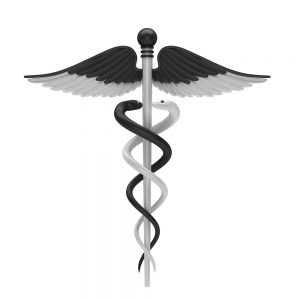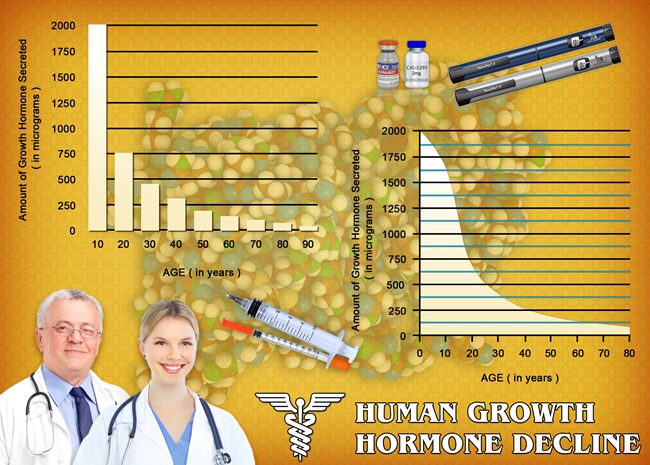
Video Link: https://vimeo.com/258987107
Video Download: Click Here To Download Video
Video Stream: Click Here To Stream Video
Human Growth Hormone (HGH) Replacement Therapy can work wonders on restoring out-of-shape bodies and maintaining good health. But never forget that there is a "Golden Rule" of healthy living and longevity: what you don't do is more important than what you do. What this means is simple. We provide world-class hormone replacement the is efficient, safe, and cost-friendly. However, the best hormone replacement in the world cannot undo the debilitating effects of smoking. Here are the results of a recent study that drives this point home.
If you smoke, the findings of this new study will make you at least think about quitting, and hopefully throw those cancer sticks where they belong: in the trash can, once and for all.
 We all know smoking delivers numerous health horrors: cancer, premature aging, gum disease, lung disease, Alzheimer’s Disease, heart disease...the list goes on and on, with too many other well-known afflictions to mention.
We all know smoking delivers numerous health horrors: cancer, premature aging, gum disease, lung disease, Alzheimer’s Disease, heart disease...the list goes on and on, with too many other well-known afflictions to mention.
But Now There's a New One to Add to this Blood-Curdling List
A new study has linked smoking with the thinning of the cortex, the brain’s outer layer.
Neurologists have long known that the cortex is known to thin as a person ages.
However, that problem seems to be accelerated in smokers. This part of the brain is where functions such as memory, language, and perception take place...and a thinning cortex is associated with cognitive decline.
In the study, published in the journal Molecular Psychiatry, researchers looked at health data and MRI brain scans of 244 men and 260 women with an average age of 73.
Some of the people in the study were current smokers, some were ex-smokers, and some were nonsmokers.
The brain cortices of the current and ex-smokers were thinner than those who had never smoked before, researchers found.
But the good news: People who did smoke but quit the habit seemed to “partially recover their cortical thickness for each year without tobacco use,” study researcher Sherif Karama, MD, assistant professor of psychiatry at McGill University, said in a statement.
researcher Sherif Karama, MD, assistant professor of psychiatry at McGill University, said in a statement.
However, Karama did add that even though researchers saw signs of recovery, the process seemed to be slow, and the former smokers’ cortices were still thinner than those who never smoked.
Previously, research out of the University of California, Los Angeles, showed that smoking during young adulthood seems to thin a particular part of the brain cortex, called the insula.
The insula plays a vital role in decision-making and monitoring internal states; it’s also the part of the brain with the highest density of nicotinic acetylcholine receptors, meaning it has a strong role in tobacco dependence.
But Many People are Still Not Getting the Message
The findings come at the same time as those of another study that examined health data from nearly one million people over approximately 10 years, showing that in the U.S., tobacco is to blame for five new diseases and 60,000 deaths a year, the New York Times reports.
The five conditions found to be  newly linked with tobacco use include kidney disease, infection, intestinal disease from blood flow problems, and heart and lung diseases that, before, were not previously linked to smoking.
newly linked with tobacco use include kidney disease, infection, intestinal disease from blood flow problems, and heart and lung diseases that, before, were not previously linked to smoking.
"A substantial portion of the excess mortality among current smokers between 2000 and 2011 was due to associations with diseases that have not been formally established as caused by smoking," the authors of the study, which appeared in The New England Journal of Medicine, wrote.
“These associations should be investigated further and, when appropriate, taken into account when the mortality burden of smoking is examined.”
So, once again, the message is loud and clear.
Smoking delivers no real benefits that can't be found in far less lethal ways...but it can be a serious risk to your good health and even your life.
If you smoke, at least consider cutting down.
Better yet, quit!
Remember: Growth hormone replacement will work wonders on your body, both internally and externally. Don't let smoking get in the way of the good-health train of HGH!
Contact us for a FREE, no-obligation discussion on the benefits of growth hormone replacement.
References
How Secondhand Smoke Affects the Brain
https://www.nih.gov/news-events/nih-research-matters/how-secondhand-smoke-affects-brain
From E-Cigs to Tobacco: Here’s How Nicotine Affects the Body
https://www.healthline.com/health-news/heres-how-nicotine-affects-the-body

Contact Us Today For A Free Consultation
Dear Patient,
Once you have completing the above contact form, for security purposes and confirmation, please confirm your information by calling us.
Please call now: 1-800-380-5339.
Welcoming You To Our Clinic, Professor Tom Henderson.

- Are You Constantly Feeling Tired And Fatigued ? [Last Updated On: April 27th, 2025] [Originally Added On: May 1st, 2018]
- Constantly Tired? Can't Sleep? [Last Updated On: March 14th, 2025] [Originally Added On: March 23rd, 2019]
- How to Understand and Deal with Cirrhosis [Last Updated On: March 13th, 2025] [Originally Added On: April 12th, 2019]
- Insomnia: The Silent Killer [Last Updated On: March 12th, 2025] [Originally Added On: April 30th, 2019]
- Lipocine Reintroduces Tlando [Last Updated On: August 19th, 2025] [Originally Added On: March 18th, 2020]
- High-Intensity Interval Training Boosts Both Body and Mind [Last Updated On: February 20th, 2025] [Originally Added On: May 10th, 2020]
- Tattoo Safety: What to Know Before You Get a Tattoo [Last Updated On: February 28th, 2025] [Originally Added On: June 2nd, 2020]
- Testosterone and Fatherhood [Last Updated On: April 25th, 2025] [Originally Added On: October 12th, 2020]
- L-Arginine: The Key to Both Heart Health and Sexual Health [Last Updated On: March 10th, 2025] [Originally Added On: December 4th, 2020]
- The Importance of Hormonal Balance for Menopause [Last Updated On: February 20th, 2025] [Originally Added On: December 14th, 2020]
- Menopause Drugs: Study Stokes New Debate Over Cancer Risks [Last Updated On: March 8th, 2025] [Originally Added On: December 16th, 2020]
- Study Examines Link Between Growth Hormones and Osteoporosis [Last Updated On: March 11th, 2025] [Originally Added On: December 17th, 2020]
- Everything You Need to Know About Clomiphene [Last Updated On: March 9th, 2025] [Originally Added On: December 20th, 2020]
- Fast Facts About DHEA: What You Need to Know About This Natural Steroid [Last Updated On: August 16th, 2025] [Originally Added On: March 4th, 2021]
- Enjoy a Few Drinks Weekly? Beware: This May Be a Link to Low Sperm Counts and Quality [Last Updated On: March 6th, 2025] [Originally Added On: August 16th, 2021]
- Hormone Therapy May Benefit Some Women's Hearts [Last Updated On: February 20th, 2025] [Originally Added On: August 18th, 2021]
- HGH Male Blood Panel [Last Updated On: October 28th, 2021] [Originally Added On: September 28th, 2021]
- Growth Hormone Battles Osteoporosis [Last Updated On: February 26th, 2025] [Originally Added On: October 11th, 2021]
- Growth hormone = More Sleep = Better Sex! [Last Updated On: March 7th, 2025] [Originally Added On: October 11th, 2021]
- Low Testosterone and Hypogonadism: The Difference [Last Updated On: May 19th, 2025] [Originally Added On: October 12th, 2021]
- The Link Between Testosterone and Tylenol [Last Updated On: February 21st, 2025] [Originally Added On: October 12th, 2021]
- Hormone Replacement Therapy and Aerobics May Ease Menopause Symptoms [Last Updated On: February 19th, 2025] [Originally Added On: October 13th, 2021]
- Growth Hormone and Lifestyle = An Extended Lifespan [Last Updated On: February 23rd, 2025] [Originally Added On: October 13th, 2021]
- Growth Hormone, Foods, and Supplements for Healthy Skin [Last Updated On: May 10th, 2025] [Originally Added On: October 13th, 2021]
- Hormone Replacement Therapy, Menopause, and Cancer [Last Updated On: February 24th, 2025] [Originally Added On: October 13th, 2021]
- Growth Hormone, Exercise, and Osteoporosis: The Facts! [Last Updated On: February 22nd, 2025] [Originally Added On: October 13th, 2021]
- Hormone Replacement Therapy and Menopause [Last Updated On: February 25th, 2025] [Originally Added On: October 13th, 2021]
- Testosterone and Women [Last Updated On: February 18th, 2025] [Originally Added On: October 13th, 2021]
- Testosterone, Statins, and Prostate Cancer [Last Updated On: February 18th, 2025] [Originally Added On: October 19th, 2021]
- Researchers Investigate Declining Sperm Counts, Find Chemicals Rampant [Last Updated On: May 23rd, 2025] [Originally Added On: June 14th, 2022]
- Understanding the Role of Hormonal Balance in Menopause [Last Updated On: February 7th, 2025] [Originally Added On: February 7th, 2025]
- Introduction: Benefits of Hormone Replacement Therapy [Last Updated On: February 8th, 2025] [Originally Added On: February 8th, 2025]
- The Influences and Benefits of High-Intensity Interval Training [Last Updated On: February 8th, 2025] [Originally Added On: February 8th, 2025]
- The Link Between Human Growth Hormone, Exercise, and Osteoporosis [Last Updated On: February 9th, 2025] [Originally Added On: February 9th, 2025]
- The Therapeutic Benefits of Human Growth Hormone [Last Updated On: February 16th, 2025] [Originally Added On: February 16th, 2025]
- Introduction: The Reality of Menopause [Last Updated On: February 18th, 2025] [Originally Added On: February 18th, 2025]
- An Introduction to the Benefits of Human Growth Hormone Replacement Therapy [Last Updated On: February 19th, 2025] [Originally Added On: February 19th, 2025]
- Introduction to Hormone Replacement Therapy [Last Updated On: February 20th, 2025] [Originally Added On: February 20th, 2025]
- Introduction: Evaluating the Safety of Hormone Replacement Therapy [Last Updated On: February 23rd, 2025] [Originally Added On: February 23rd, 2025]
- The Rise of Tattoos in America [Last Updated On: February 23rd, 2025] [Originally Added On: February 23rd, 2025]
- The Influence of Growth Hormone and Sleep on Libido [Last Updated On: February 27th, 2025] [Originally Added On: February 27th, 2025]
- Introduction: The Association Between Alcohol Consumption and Sperm Quality [Last Updated On: February 27th, 2025] [Originally Added On: February 27th, 2025]








